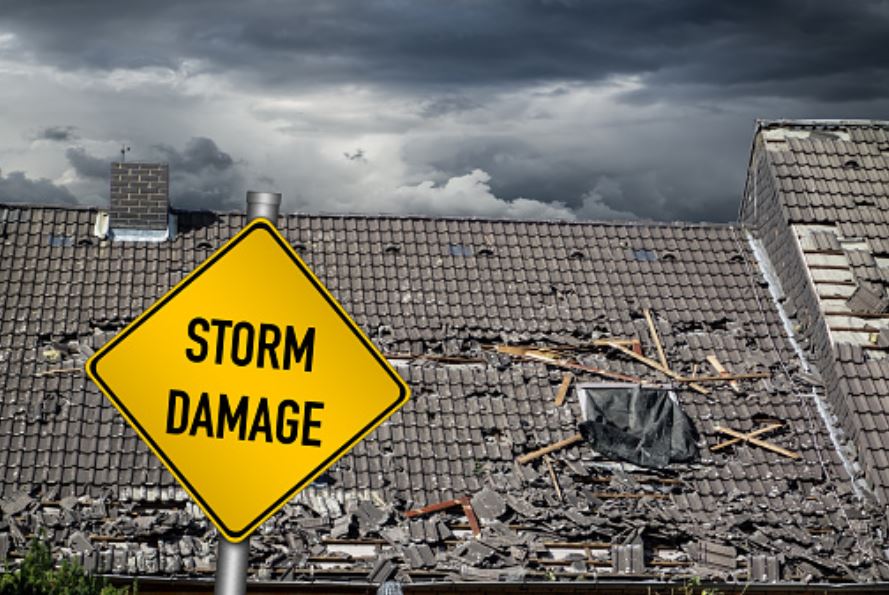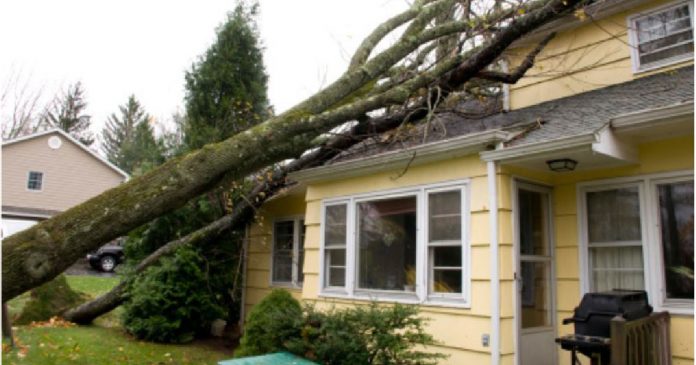Living in a part of the world where adverse weather conditions are known to occur poses certain extra risks and concerns for not only your personal safety but the structural integrity of your house as well. Here are some simple but highly effective tips to protect yourself and your home from injury and damage during stormy weather.
Clear Away Loose Garden Objects
If you receive a weather warning for strong winds or hurricanes, you should clear away and lose objects in your yard that could be picked up by the winds and cause damage to your home, or injure someone. Items like trampolines, trash cans, and garden furniture can all pose risks of flying into a window or into the street and causing damage.
You should also check and maintain your garden sheds and fences. Any loose or failing structure could easily be ripped from the ground, or broken into pieces, by extreme weather conditions. The better-maintained your yard structures are, the safer you, your neighbors, and your home will be.
Pay Attention To Surrounding Trees
If you live in an area prone to high winds, tornados, and electrical storms, you should pay close attention to the trees around your home. These intense weather events can lead to trees being entirely snapped or uprooted, and branches breaking away. Any of these events pose serious potential risks to your safety and your home’s integrity.
Look out for the warning signs that a tree near you might be in danger of falling or snapping. These include cracked soil around its base, root rot, clustered canopies, and poor branch structure, such as codominant stems. Trees that display these risk factors are more likely to fail during adverse weather.
If you have trees around your property, even if they do not display these warning signs, but especially if they do, you should invest in regular tree service maintenance. A tree expert can trim branches, prune the trees, and offer cabling services. The latter involves attaching strong cables to healthy trees that are leaning or have a split stem, so have a higher chance of falling. The cabe provides more structural support.
Switch Off Electrics, Avoid Bathing
In anticipation of the approaching storm, it is a smart idea to charge up your phones and tablets, so when the bad weather hits, and the power goes out, you have light, entertainment, and a means of communication.
If the power does indeed cut out, turn off all appliances at the switch. This way you prevent the chances of an appliance turning back on unattended when the power returns. This could result in a fire.
Unplugging all appliances andturning off the electricity will also prevent potential fires or electrocution in the event that lightning strikes the electric wires. Moreover, avoiding having a bath or shower during a storm will keep you safe if lightning strikes the metal pipes, causing a surge of electricity through the plumbing.
Maintain Your Roof
An easy and highly-effective method of preventing damage to your house, as well as minimizing risks to others, is by maintaining your roof. This reduces the likelihood of flying roof tiles, and structural damage to your home.
Look out for these seven common signs of roof damage, as listed by USA Today: cracked, curling, warped or missing shingles or roof tiles, broken flashing (the stips along the edges), loose seams, large amounts of shingle granules stuck in the rain gutters, cracked paint, peeling wallpaper or wall coverings, and discolored plasterboard.

If Damage Does Occur
Despite taking these preventative precautions leading up to the stormy season, damage can occur. In the event of damage to your home in a storm, take photographs. This will help you greatly with your insurance claim.
Damage can occur to your home or your property due to leaks in the home, holes in the roof, fried electrics, broken valuables, and so on. While it might not be your first instinct to document the damage, it is highly recommended.
Start Preparing Now For Hurricane Season
Now that you know what you need to do, there is no sense in waiting. Make plans for storage of your yard items, check the structural integrity of your sheds and fences, call a tree expert in your area, and maintain your roof! These simple measures could save your home from massive damages, and prevent injury to you, your family, or your neighbors. And remember, avoid the use of electricity and showering during an electrical storm. Good luck!










